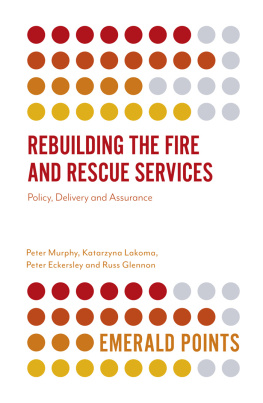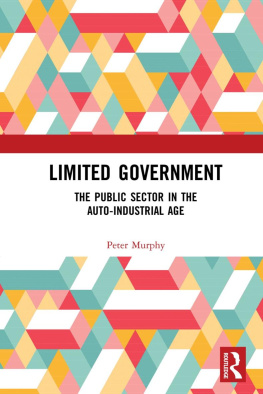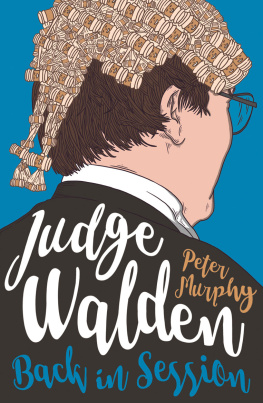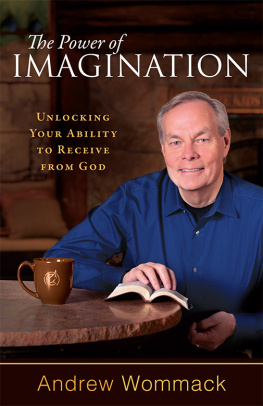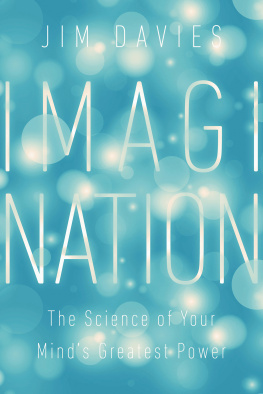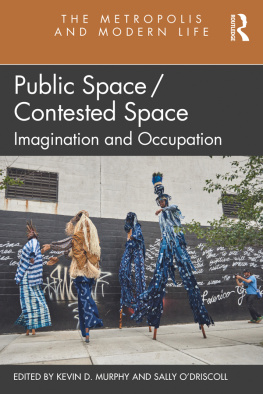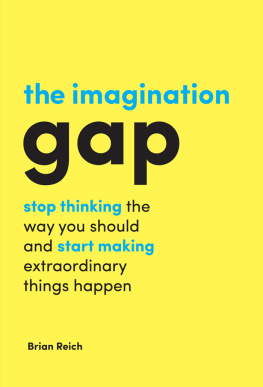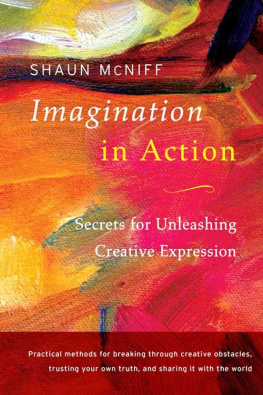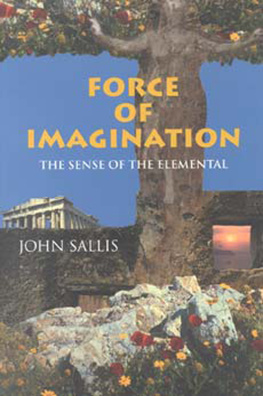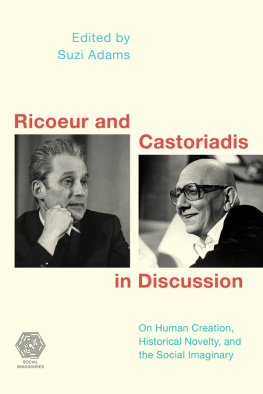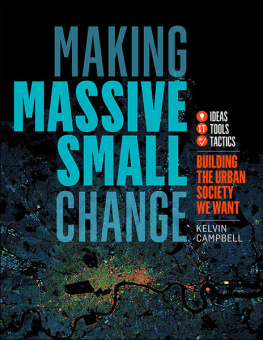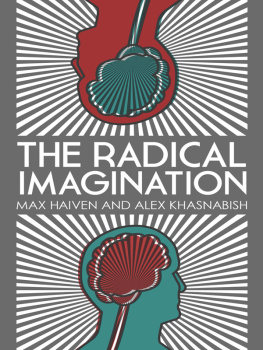THE COLLECTIVE IMAGINATION
Thomas Hobbes wrote in Leviathan those that observe their similitudes, in case they be such as are but rarely observed by others, are said to have a good wit. I came across that passage a long time ago when researching my doctoral thesis and it stuck with me. This present work is the result of 25 years of thinking about what Hobbes said. A good number of people aided and abetted that thinking along the way. I want to thank above all Agnes Heller, to whom this work is dedicated. Agnes supervised that now-distant PhD a quarter of a century ago and among a multitude of wonderful works she wrote is one whose spirit haunts The Collective imagination. Her book Immortal Comedy fingers laughter as the instinct of reason and humour and wit as sublime expressions of the rationality of the intellect. To that idea, and the mirthful self-irony of reason, this book is deeply in debt.
The Collective Imagination
The Creative Spirit of Free Societies
PETER MURPHY
James Cook University, Australia
First published 2012 by Ashgate Publishing
Published 2016 by Routledge
2 Park Square, Milton Park, Abingdon, Oxon OX14 4RN
711 Third Avenue, New York, NY 10017, USA
Routledge is an imprint of the Taylor & Francis Group, an informa business
Copyright 2012 Peter Murphy
Peter Murphy has asserted his right under the Copyright, Designs and Patents Act, 1988, to be identified as the author of this work.
All rights reserved. No part of this book may be reprinted or reproduced or utilised in any form or by any electronic, mechanical, or other means, now known or hereafter invented, including photocopying and recording, or in any information storage or retrieval system, without permission in writing from the publishers.
Notice:
Product or corporate names may be trademarks or registered trademarks, and are used only for identification and explanation without intent to infringe.
British Library Cataloguing in Publication Data
Murphy, Peter, 1956-
The collective imagination : the creative spirit of free societies.
1. Imagination--Social aspects. 2. Creative ability. 3. Intellectual capital. 4. Intellectual cooperation. 5. Statics and dynamics (Social sciences)
I. Title
303.48-dc23
Library of Congress Cataloging-in-Publication Data
Murphy, Peter, 1956-
The collective imagination : the creative spirit of free societies / by Peter Murphy.
p. cm.
Includes bibliographical references and index.
ISBN 978-1-4094-2135-1 (hbk) 1. Imagination--History 2. Creative ability--History. 3. Civilization. I. Title.
BF411.M857 2011
303.48--dc23
2011053306
ISBN 9781409421351 (hbk)
ISBN 9781315614830 (ebk)
Contents
List of Tables
About the Author
Peter Murphy is Professor of Creative Arts and Social Aesthetics at James Cook University. He is author of Civic Justice (2001) and co-author of Dialectic of Romanticism (2004), Creativity and the Global Knowledge Economy (2009), Global Creation (2010), and Imagination (2010).
Acknowledgements
Parts of Chapters 3, 4 and 6 draw on material from I Am Not Who I Am: Paradox and Indirect Communication, or the Case of the Comic God and the Dramaturgical Self, Empedocles: European Journal for the Philosophy of Communication 1(2), 22536, 2009 (Intellect); Systems of Communication: Information, Explanation and Imagination, International Journal of Knowledge and Systems Science 2(2), 115, 2011 (IGI); Creative Economies and Research Universities in M.A. Peters and D. Araya (eds) Education in the Creative Economy: Knowledge and Learning in the Age of Innovation (New York: Peter Lang, 2010).
Introduction
Creativity concentrates in particular societies and geographical regions and in specific historical periods. What explains this? Why is it that some societies and some historical eras are more creative than others are? Why are those societies or periods better at galvanizing the creativity of individuals than others? And why is it that our own age is less brilliant than others? The Collective Imagination tries to answer these questions by probing the media of the imagination, exploring the part played by paradox, antinomy and metaphor in acts of creation. Media such as these connect the unconnected. They unite opposites. In so doing, they double images, thoughts, processes and deeds in uncanny, surprising and fertile ways. They make what is different, the same, and what is the same, different. In short, they make the impossible possible. Thats creation.
Acts of creation contribute immeasurably to the depth, dynamism and richness of social life. They produce social meaning and they replenish it when societies exhaust it as invariably happens. They animate scientific discovery and technological innovation. They nourish artistic insight and aesthetic pleasure. Conversely, creative media are socially conditioned and socially mobilized. So that the most startling acts of individual creativity are principally found in those periods, societies and institutions that exhibit a high propensity for inventiveness. The Collective Imagination examines the nature of the creative spirit the collective generative agency of free societies that delight in invention. It also analyses how the cultural cores of creative societies energize and animate economic, social, and political systems.
Modern high functioning arts-and-science-based economies perform by successfully capturing the patterns and paradoxes of human inventiveness. They turn these patterns and paradoxes into drivers of industrial development and social prosperity. When this happens, the imagination is transformed into an integral factor of production. Ingenuity becomes interwoven with the general sense of social well-being. The Collective Imagination explores the resulting scientific and aesthetic modes of production and the way in which these interact with economic, social and political systems. The point is made that it is particular kinds of societies and types of economies and forms of politics that lend themselves, on a collective scale, to the paradoxical shaping and synthesizing forces of the imagination.
The Collective Imagination begins by exploring the general character of the imagination. The imagination of individuals allows each one of us to integrate incongruent qualities. It allows us to make one common thing out of two things that are unlike each other. We discover similarities in difference. Imaginative thinking is appositional. It unites opposing qualities into distinctive, socially-powerful and coherent patterns, shapes and forms. And just as individuals have imaginations, so do societies. The power of imagination resonates in specific periods and places. Elizabethan London and late nineteenth century New York, Boston, and Chicago are classic examples. Wit exemplifies the collective imagination at work. Certain societies at certain times exhibit high levels of wit, irony, and paradox. From Classical Athens to the London of Chesterton and Churchill, the witty imagination is the classic marker of a creative society. In turn, a creative society is a free society. While free societies have many forms, all are sceptical of tyrannical thinking and behaviour. Whether tyranny is born of rationalism or irrationalism, the objection is the same. Tyrants, bores, and totalitarian dictators are the special target of the witty imagination.


